Elimelech Basch lived in Tiachiv in eastern Hungary (today western Ukraine).Tiachiv was invaded by the Nazis in March, 1944. Between the years 1942-1944 Basch kept a diary, written in fine Hebrew, describing the situation of the Jewish community there. During this period the Jews suffered from the oppressive Hungarian and Nazi regimes and moved between despair and hope.
During the Jewish festival of Shavuot, May, 1944, the Jews of Tiachiv were all deported to Auschwitz. Of the Basch family - the parents and their eight children – only one survived.
Photograph: The Basch family at the beginning of the 1930's.
The only surviving member of the family, Mrs. Perhiya Senderovich (formerly Bluma Blanka Basch), is highlighted. She now lives in Israel.
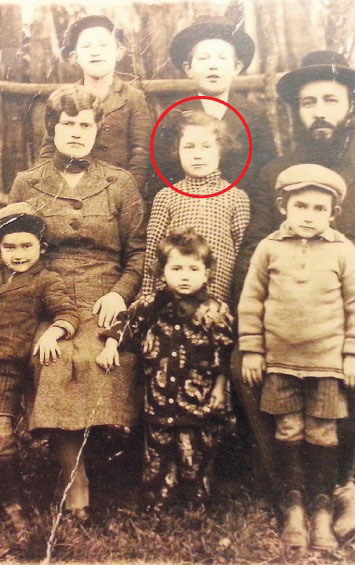
-
THE JEWISH COMMUNITY OF TIACHIV
The last census before the German occupation, held in January 1941, reported that there were 2,150 Jewish residents in Tiachiv. They made up 20% of the total population of the town. Many of the Jews were merchants; others were craftsmen, agricultural workers and farmers. The Jewish community was, like most Jewish communities in Eastern Europe, a religiously observant, Orthodox community.
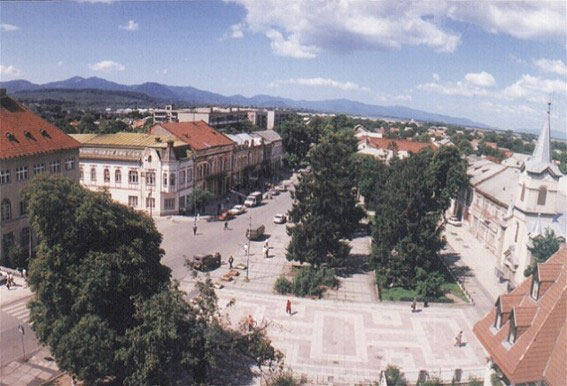 Today's Tiachiv
Today's Tiachiv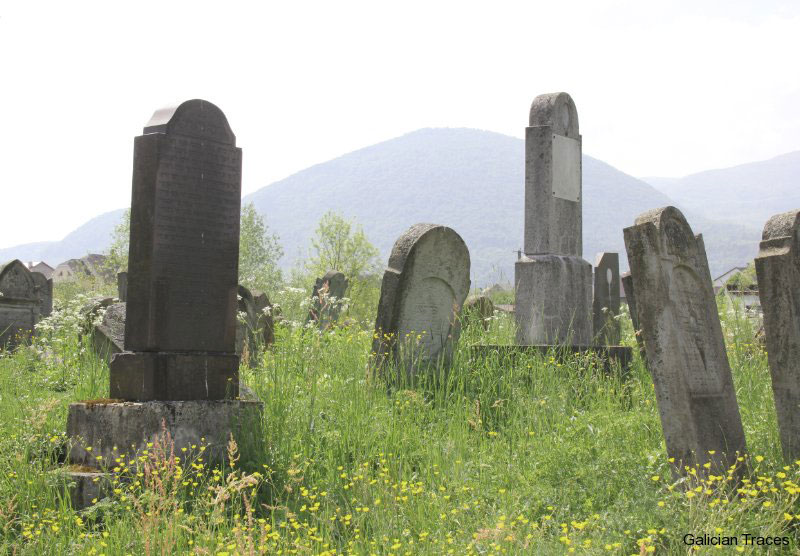 The Jewish cemetery in Tiachiv
The Jewish cemetery in Tiachiv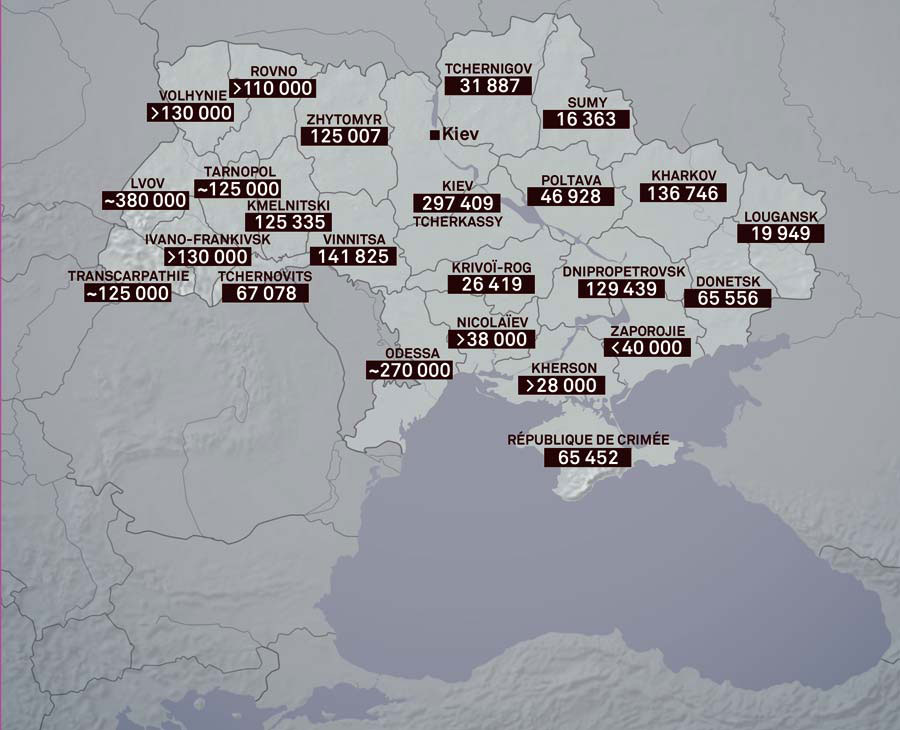 Map of the Jewish communities before the Holocaust within the borders of today's UkraineJewish Musicians, 'Kleyzmerim'
Map of the Jewish communities before the Holocaust within the borders of today's UkraineJewish Musicians, 'Kleyzmerim' -
DARK TIMES
In March, 1939 Tiachiv came under Hungarian sovereignty and the Jews began to suffer from oppressive legislation. The local synagogue was sacked, and beatings and harassment became part of everyday life.
The German army conquered Hungary on the 19th of March, 1944. A ghetto was established in April, into which about 10,000 Jews from the region were deported. Each apartment in the ghetto housed 10-15 persons, no food was supplied and the population began to starve.
Those who tried to escape were turned over to the Hungarian police who worked in cooperation with the Nazis. The Jews of the Tiachiv Ghetto were deported to Auschwitz between the 22th-26th of May, 1944.
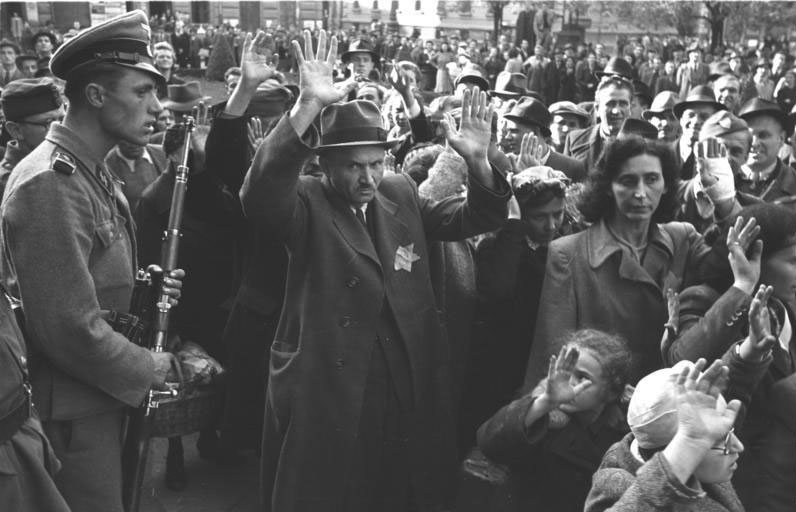 Deportation of Jews, Hungary, 1944
Deportation of Jews, Hungary, 1944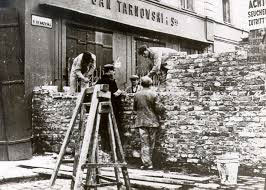 Building the Warsaw Ghetto's walls, December 1940
Building the Warsaw Ghetto's walls, December 1940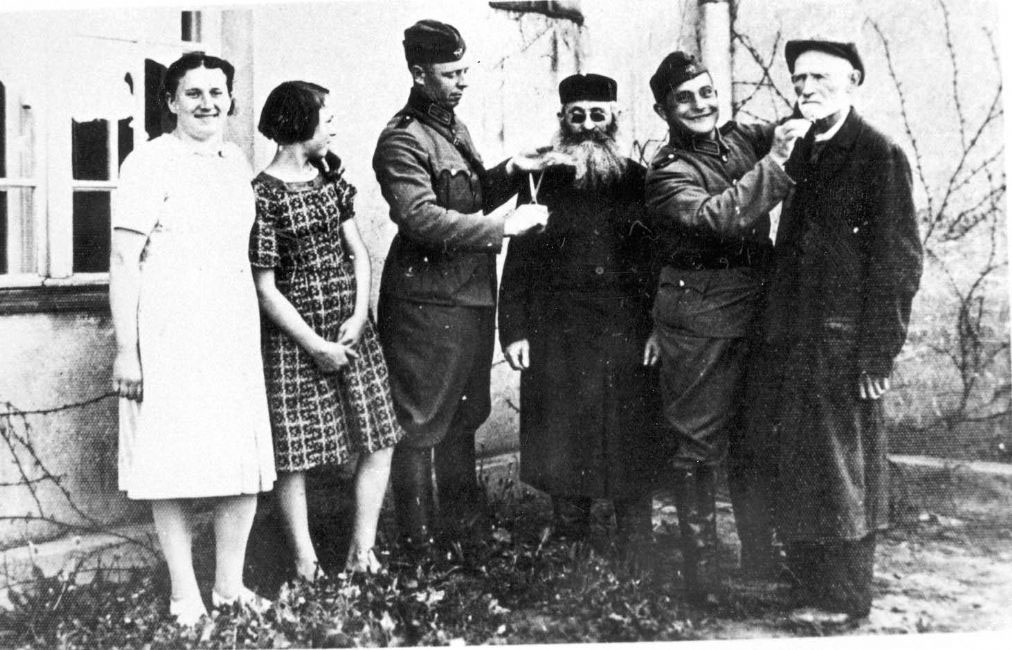 Humiliation, cutting elderly Jews' beards
Humiliation, cutting elderly Jews' beards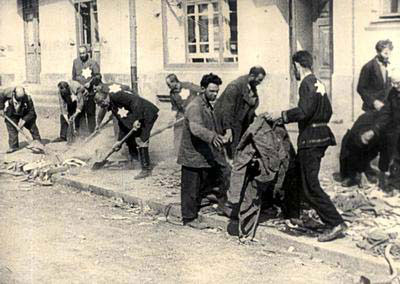 Forced Labor
Forced Labor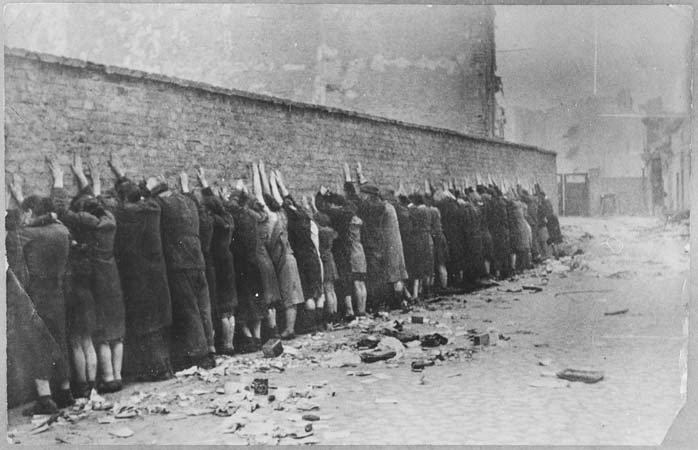 Jews lined up against the wall, the Warsaw Ghetto
Jews lined up against the wall, the Warsaw Ghetto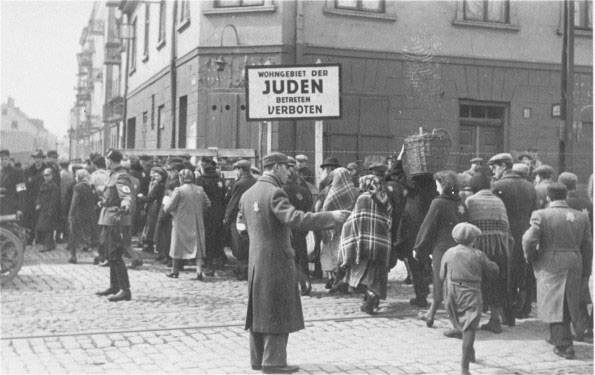 The Lodz Ghetto
The Lodz Ghetto -
THE FAMILY'S LAST DAYS
In his diary, Elimelech Basch described his family's last days. The family debated what to do until the last moment, after the Germans had already entered the town:
"I argued with my wife that she shouldn't clean and paint for (the holiday of) Passover, but she continued her work as usual saying that as long as we live we should hope for the good and God will choose to do as he sees fit. My son Isaac, seeing my great anxiety, said that I should buy a gun and shoot all the members of our family".
…" I watched my children play and wept, who knows what will happen to them?"
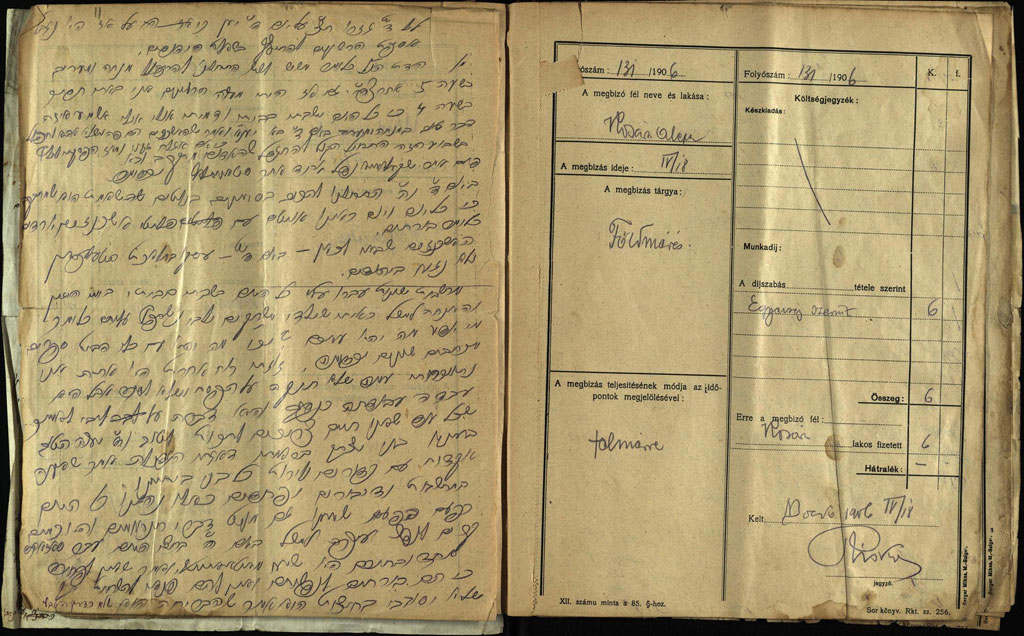 The Basch Diary, the last days, 18.4.44, p.11, NLI
The Basch Diary, the last days, 18.4.44, p.11, NLI -
DEPORTATION TO THE DEATH CAMPS
Elimelech Basch, his wife Miriam, and their eight children were deported to Auschwitz during the 22nd-26th of May, 1944. Elimelech (46), Miriam (40), Isaac (18), Mordechai (14), Hershl (12), Yisrael (10), Moshe (8), Shlomo (6) and little Esther, aged 4, were all murdered in the death camp. Bluma (Perhiya), the eldest daughter, aged about 20 at the time, was the only family member who survived the hell of Auschwitz. Until this day she is not willing to speak about her experiences during the war, not even to her closest family.
Movie: The May 1944 deportations, on which the Basch family was sent to the death camps.
The photographs were taken on May-June, 1944 by two SS servicemen whose task it was to take ID photos and fingerprints of the inmates of the camp.
-
SURVIVING DAUGHTER IN ISRAEL
Elimelech Basch's eldest daughter, Bluma (Perhiya), was the only member of the Basch family to survive the Holocaust. Bluma immigrated to Israel, changed her name to Perhiya and built a new family. Perhiya has three children, many grandchildren and a newborn great granddaughter. She is now 87 years old and is still an active volunteer in her hometown, Lydda (Lod).
 Perhiya and her family, Israel
Perhiya and her family, Israel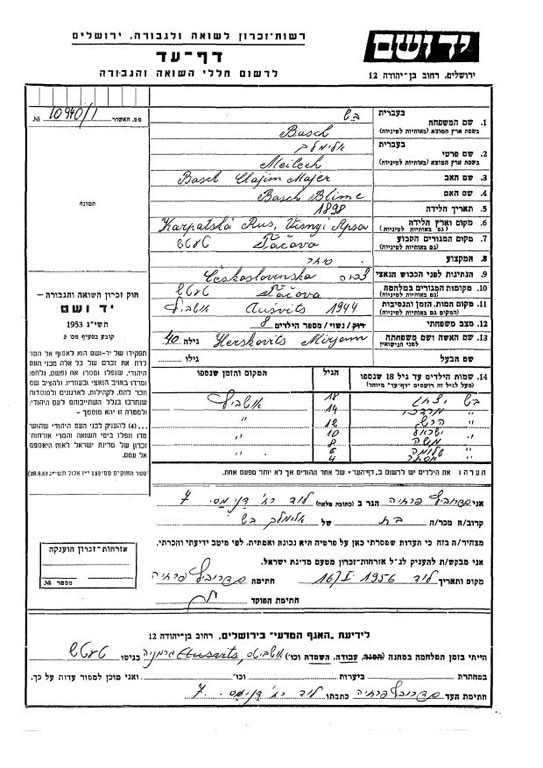 Perhiya's 'Page of Testimony' at Yad Vashem museum, 1956
Perhiya's 'Page of Testimony' at Yad Vashem museum, 1956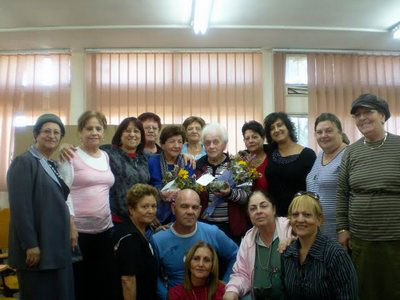 Perhiya receiving a token of gratitude from the city of Lydda
Perhiya receiving a token of gratitude from the city of Lydda -
THE DIARY AT THE NATIONAL LIBRARY
After the war Elimelech Basch's brother, Jacob, who survived the Holocaust, returned and found the diary. He later gave it to Basch's only remaining daughter - Perhiya - who lives in Israel. She, in turn, donated the diary to the National Library of Israel for safekeeping.
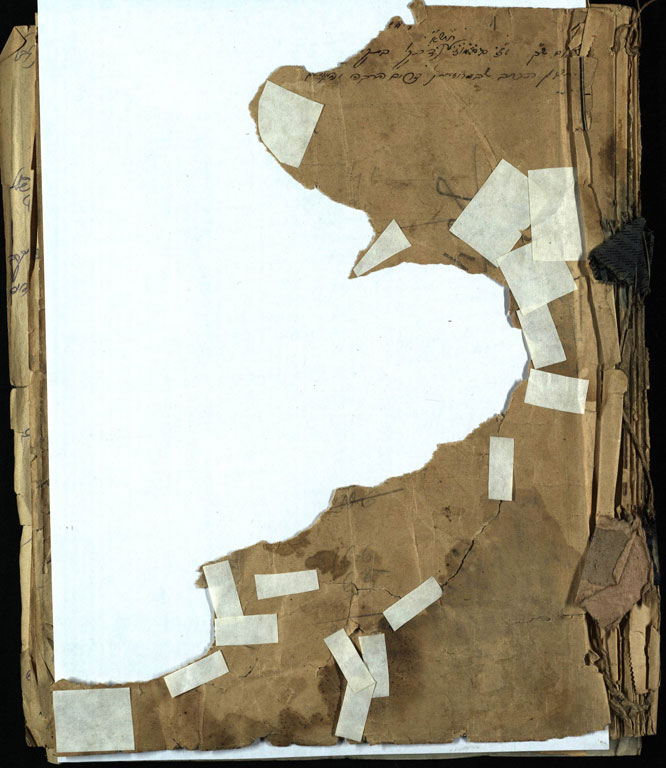 The Basch Diary, p.1, NLI
The Basch Diary, p.1, NLI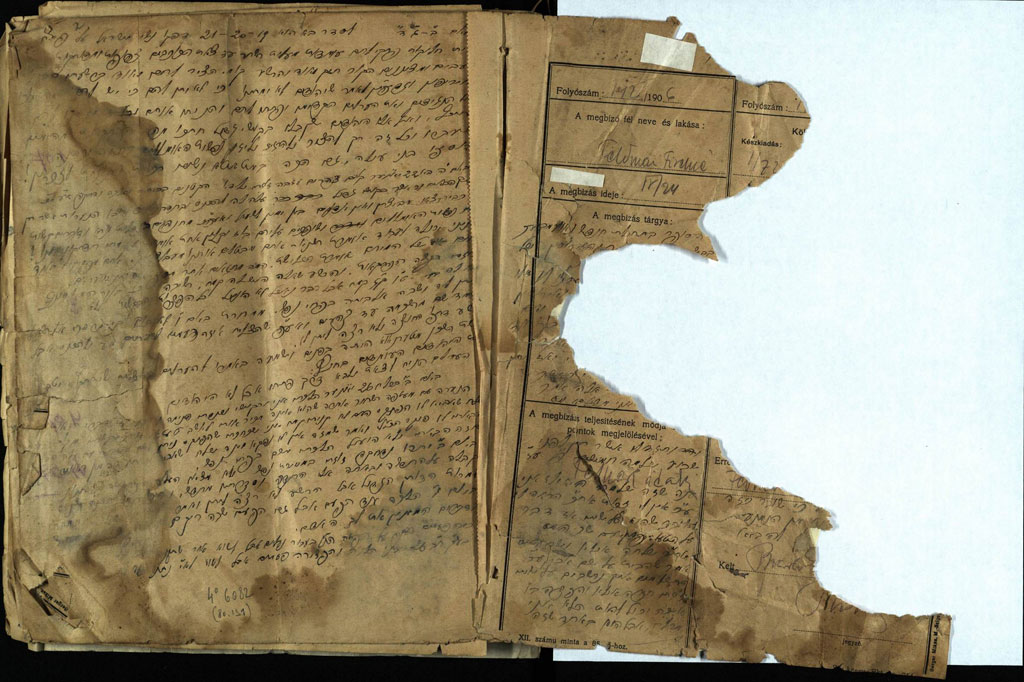 The Basch Diary, p.2, NLI
The Basch Diary, p.2, NLI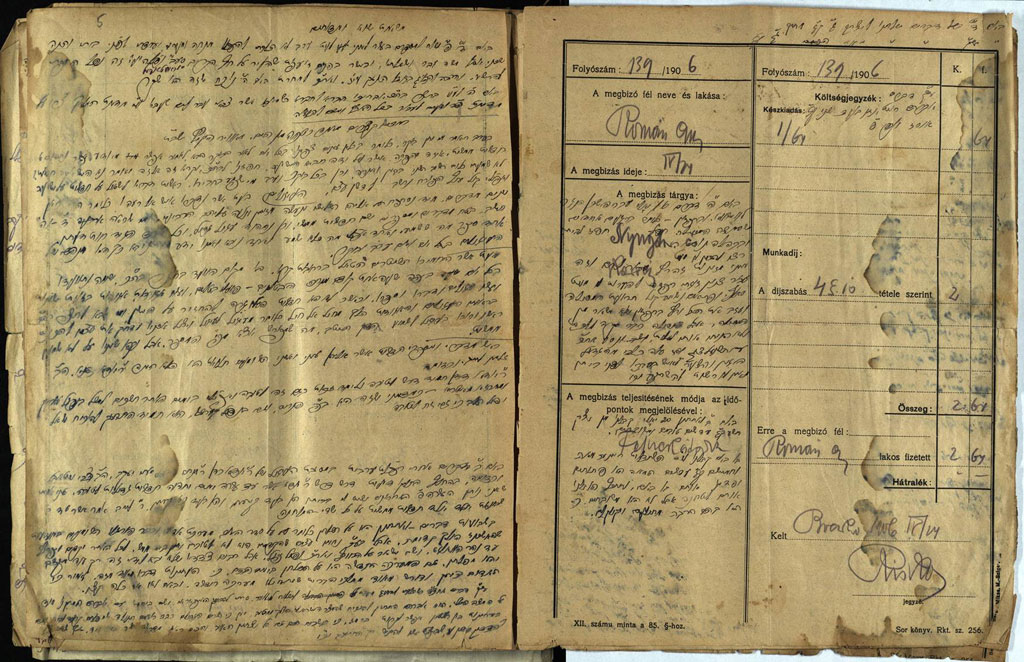 The Basch Diary, p.5, NLI
The Basch Diary, p.5, NLI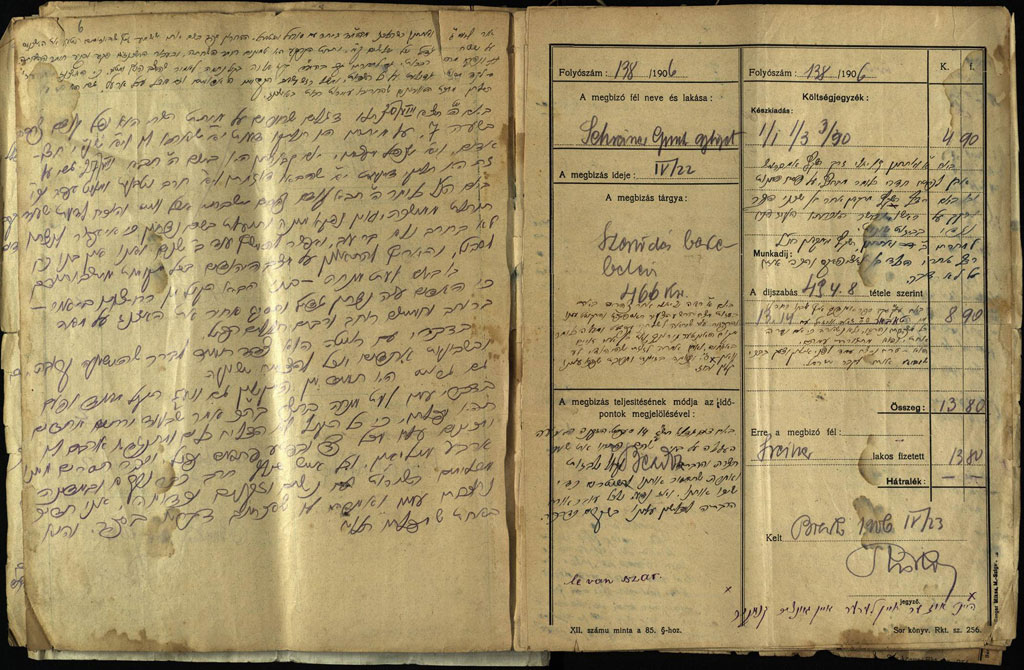 The Basch Diary, p.6, NLI
The Basch Diary, p.6, NLI